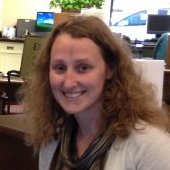Gallery day was a great experience for me as I’m sure it was for the whole team. We presented all of the work we had culminated up to that point utilizing charming posters with insights coupled with roadmaps and a deep learning for what we were trying to accomplish. I had not yet met Debra, the head of Imani Unidad itself, so presenting her with our project was somewhat nerve-wracking but it turned out very well for us. Debra brought two of her associates from Imani Unidad and they loved the attention we brought to the organization and the highlights of issues needing to be addressed. Both parties agreed that the firm needed a stronger marketing PR of bringing in members in to the organization. The activity ended with some parting thoughts of making sure we continue to interview employers and realtors on their insights for further insight in our ethnographic research. It was an enjoyable day and very eye opening to get thoughts on the actual people dealing with these issues.
Category: IMANI UNIDAD
The primary purpose of Imani Unidad is to provide HIV/STD and substance abuse prevention, education and advocacy through community efforts. We include HIV positive and African American community members in decision making, education, advocacy, service delivery, public relations, research and leadership. Imani Unidad provides community representatives to facilitate workable solutions through community partnerships; Teen Peer Education which offers comprehensive skills building activities and prevention information for youth to serve as a resource for one another; and engage in other activities that promote the overall goals of the organization.
Leaah Hopper, Expert Interview
Ethnography Summary
Stephen Muldoon interviewed Leaah Hopper of AIDS Ministries
Date: 3/3/17
Location: Library
Team participants: Conducted interview in group
User Characteristics: “Passionate Worker”
Executive Program Leader for AIDS Leader
Female, 30-40’s
Full-time employee and social worker for AIDS stricken Individual
Driven to support under served demographics affected by certain situations
What is this person’s biggest point of pain? Dealing with difficulties and shortcomings of individuals that do not stay on right track of help provided by organization. Dealing with heartbreaking outcomes for people affected by the disease.
Memorable quote from interview: “In some Counties, when incarcerated, they [Convicts] have a job- they have a purpose. When they get out, they are looked at with different eyes and made to believe they have no purpose “
Top 3 Leanings:
- Over eleven thousand people affected in South Bend by HIV. 78% of those live under the poverty line. The AIDS Ministry serves 416 of them. Over 40% still using drugs.
- Sex offenders really being affected as they can only really live in outskirts of society; future of the individuals affected by criminal past really dependent on crime
- AIDS Ministry provides housing to anyone with HIV that needs it; permanent solutions for individuals and families- also provide medicines.
Key Insight – (1) South Bend really underserved relatively to large HIV inflicted population (2) No real benefit from leaving jail as getting a job and a sustainable living space is almost impossible; also no help with medical coverage for disease past prison. (3) State of Indiana does not help or have any programs aimed at helping drug affected individuals; no real support system that is superior with resources.
Activities:
- Manages AIDS Ministries as a senior leader
- Helps AIDS stricken individuals with housing, medication, and rehab support
- Leads AA type meetings to provide support systems for those afflicted
- Works with Government to create initiatives for affected individuals and to help them with medication and preventing future abusive
- Provides families with permanent housing
- Provides temporary housing for anyone with any type of background (with AIDS) and helps in seeking profession and full time housing
Environment
- AIDS Ministries organization
- Environment inclusive of people with AIDS disease
- People, usually ex-convicts, make up large portion of members
- Other senior leaders and administrative assistants involved
Interactions:
- Talking with and helping members seeking to better themselves
- Work personably with people on what the necessary steps are to improve life
- Noted how passionate she spoke to us about the difficulties of these individuals and how there has to be more done to help them
Objects:
- Office desk, sitting on a chair
- Writing on notepad with pen
- Had small child at her side
Users:
- Leaah Hopper
- Me and the team
- Members of the organization
Workarounds

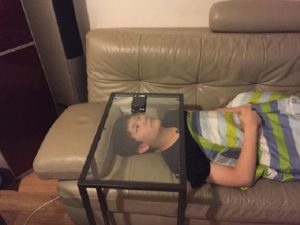

previously printed and brought to class on date due
Guiding Principles
Link to Google Slides:
https://docs.google.com/a/nd.edu/presentation/d/1tMvzqRQFX0xgDFJYQdk3BZ4sK4SsZEcU9tgChLhoZHo/edit?usp=sharing
Design Criteria
Guiding Design Principles: Imani Unidad
Design Goal: The target customer for our project is not so laid out and specific as it is with other projects. The organization we are serving is called Imani Unidad which helps ex-convicts with AIDS sustain a better lifestyle and build a real support system. By a function of us trying to help the organization, we in turn share the same end result for the end user/customer. The target customer being the afflicted individuals, the design we need to help Imani Unidad implement is ultimately providing a support system more effectively so that we may prevent these individuals from hitting ‘rock bottom’ before it gets too much for them to even try. Along those lines, our project really looks to combat the systematic segregation of such individuals with these pasts, particularly in the housing and job market that prevent these individuals from getting a decent living area and job.
User Perception: The offering we suggest for the organization, Imani Unidad, is ultimately crucial for them to achieve their continuing goal of helping the community and the members at risk or currently affected by AIDS or incarceration. This as a result is a type of design solely focused on the user’s well being and crucial for improving it in the socioeconomic and mental sense. Given the nature of the mission, there are many individuals whom might not want to associate with the organization or help improve on its goal even if they have been afflicted. People fear for their reputation as the disease is synonymous with sexual relationships and such work with the organization might shed a negatively perceived light on individuals associated with it. The key research insights can really only be taken from the professionals working in Imani Unidad and the people that they are serving. Without the needs and issues dictated from these individuals, there is very little to go on to properly serve them other than mere speculation and outcome analysis.
Problems/Needs/opportunities: The target user in our case, being the afflicted individuals, would prefer the outcome of the offering to be one that provides a consistent platform for support and one that strives to ultimately make the users their own best advocates. Along the same lines, the offering to Imani Unidad would be one that ultimately tries to change the system of how members of society with a past, like the individuals in this case, can seek housing and work without being discriminated. This in turn is really a key component to laying the foundation for self support and a real permanent and positive change in the lives of the individuals seeking help from Imani Unidad. The highlight the main current pain points the user is experiencing now: support systems are not lasting or personable enough for individuals to stay in check, the current housing market generally prevents individuals from gaining decent housing, and employers usually turn away people with a criminal history. To ultimately change one’s life, there has to be a somewhat strong degree of financial stability especially for these individuals. They need decent jobs and housing options so that they can keep away from harmful environments that would see them regress to their past.
Functional Attributes: The order of importance really for the user is first gaining an actual support system and seeing greater self advocacy for a better life. The second would be housing as a major component for why people become afflicted with crime and drug use is of lack of decent and adequate housing leading them to the streets. The last deals with the job; when the user really gets more established, a job is really the final chapter of a life change as it greatly adds importance to the user’s life; subject to change importance level with housing as it depends on economic standing of user. The design of the offering is specifically tailor made for people who have been previously incarcerated (or at risk of) and have AIDS. Therefore the offering needs to be compatible with that specific group.
Constraints: The confines of our project work really lie within the boundary of what can be done by Imani Unidad. Being an official organization, there are certain restrictions on what the organization can and cannot do such as with the degree to which they can reach and help clients that isn’t intrusive. Another constraint to our work is really how successful we can be with trying to implement a change in the housing and job market. Other than gaining insight and providing employees and estate agents with anecdotes, not much can be done on our side from a legal standpoint to change how these markets are handled and who they can catered to. As well, we ourselves cannot gain more insight from afflicted individuals than what they choose to provide, be it biased or not; we cannot push them for information nor can we force them to help make the organization better to serve the individuals more accurately.
Work Arounds Spring Break
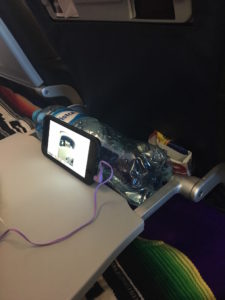
My roommate and I had different solutions to how to prop up our phones to watch the in-flight entertainment shows/movies on our flight.
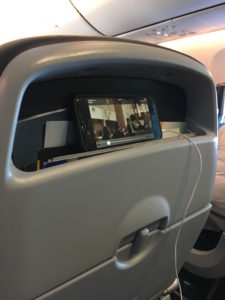
At a restaurant in Mexico, they had ran out of sauce containers, so we used the caps of drink cups to hold different kinds of salsa.
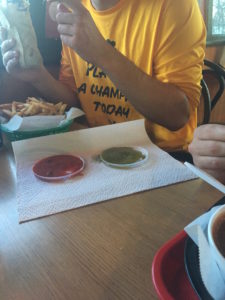
Innovation Opportunities
Clipped my life vest to my paddle board so it wouldn’t wash away while I was laying out on the sand.

Man selling items on the streets of Old San Juan uses a cement barricade as his table.
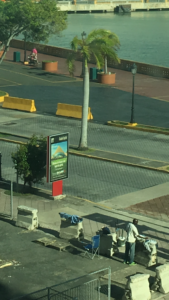
My nephew is trying to kiss me through the iPad when I FaceTimed with him from San Juan, Puerto Rico.
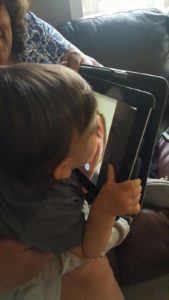
A restaurant’s sign is attached to a street post with a thin MasterLock to prevent it from getting stolen/blown away by the wind.
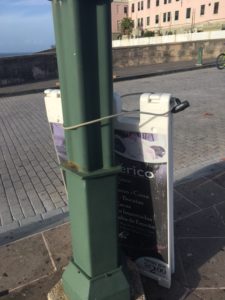
Before leaving for Spring Break I stayed the night at my friend’s sister’s apartment in Chicago. I was too short to fold the blanket by myself so I used the bay window seat to help me fold it.
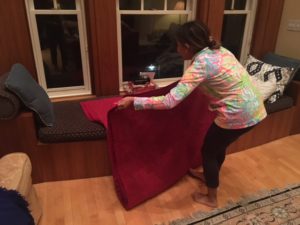
Gallery Day Reflection
Gallery Day was a great experience for our team. For some of our team members it was their first time meeting our project sponsor, Debra. Debra brought her coworker Bayey and an intern Andy with her to our exhibit. The three of them were impressed with the amount of work we had done in a relatively short amount of time. Our team had difficulty getting a start on the project because we lacked clarity on the objective of the project and the work that Imani Unidad did in the community.
We walked Debra, Bayey, and Andy through the ethnographic research and interviews that we had conducted and highlighted the insights that we had drawn. We came to a consensus that we would prepare visual graphics for Imani Unidad to use as marketing materials. Debra, Bayey, and Andy left us with some helpful suggestions as we finish up the last of our ethnographic research. We will be reaching out to other property management persons to conduct interviews similar to what we did with managers of student housing properties.
What was most helpful, however, was attending a Peer to Peer group meeting at Imani Unidad on Wednesday evening after Gallery Day. We got to talk with individuals who Imani Unidad was trying to help and hear first-hand accounts from the difficulties they faced in trying to reenter society after being released from incarceration.
Ethnography Comments
Looking forward to reviewing the next phase of your ethnography summaries. The meeting Wednesday certainly provided a window into the challenges faced by many.
Gallery Day Reflection
Our Gallery day with Debra went very well; she came in with one of her associates, Bayu, and we went through the ethnographic research we have conducted so far. We ended up finishing 3 expert interviews, 4 interactive interviews, an interactive card sort, and part of an immersion study. They were very impressed by the amount of information and insights we had collected despite relatively little contact with Imani Unidad (scheduling issues).
Debra especially seemed to really enjoy our interviews/card sort with landlords around South Bend as they reinforced some sentiments against ex-offenders that Imani Unidad has been suspecting for some time. Going further, the interviews provided very interesting insights as to why certain biases and discriminatory practices exist. Debra and Bayu took a lot of notes during this part of our presentation, and they wanted us to continue this line of interviewing with other realtors and land lords that don’t just serve students. In the next few weeks, we are planning on finishing our ethnographic research, including the immersion of calling different apartment complexes and landlords as an ex-convict looking for housing.
